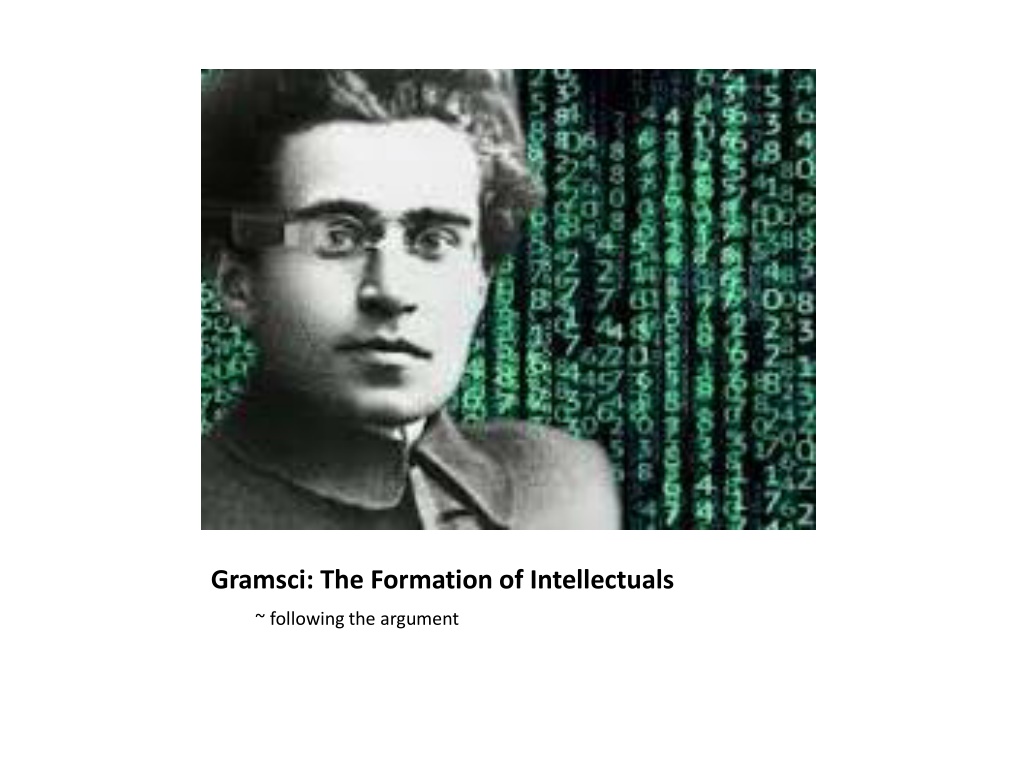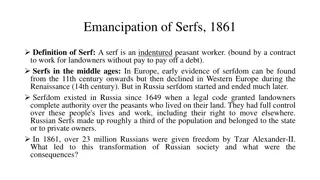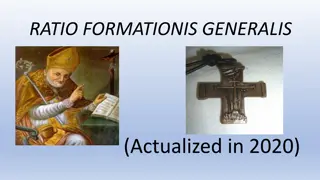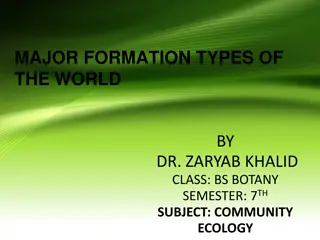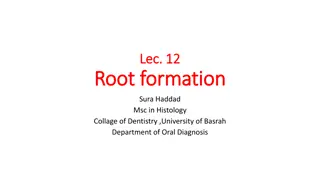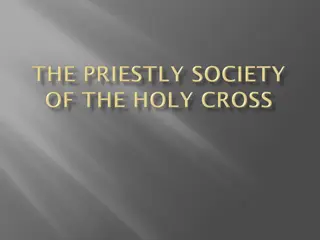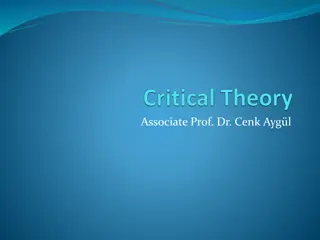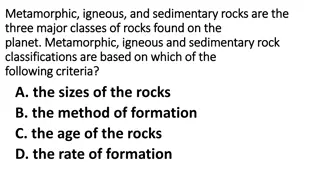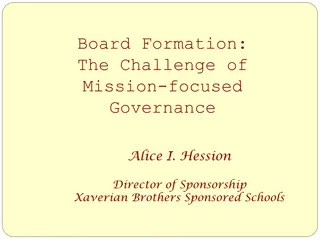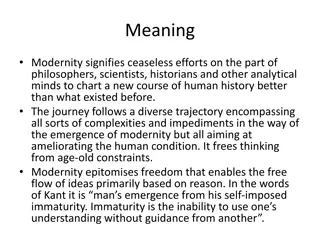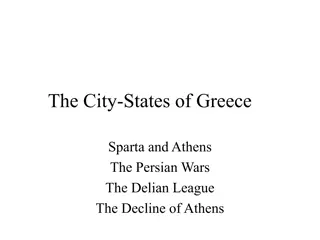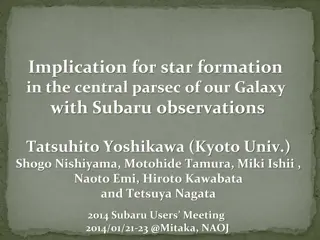The Formation of Intellectuals in Society: Insights from Gramsci
Intellectuals are individuals who utilize their intellect and specialized education to generate ideas and knowledge essential for the functioning of societal production systems. Gramsci delves into how different social groups or classes form their own intellectuals, highlighting processes, historical contexts, and the dynamic interactions involved. The creation of class-specific intellectuals is crucial for the advancement and complexity of production systems, with examples from feudal, bourgeois, and capitalist societies elucidating the nuances of intellectual formations.
Download Presentation

Please find below an Image/Link to download the presentation.
The content on the website is provided AS IS for your information and personal use only. It may not be sold, licensed, or shared on other websites without obtaining consent from the author. Download presentation by click this link. If you encounter any issues during the download, it is possible that the publisher has removed the file from their server.
E N D
Presentation Transcript
Gramsci: The Formation of Intellectuals ~ following the argument
What are intellectuals? How are they created? Generally, people who use their intellect/specialized education to produce ideas/knowledge that go into developing/maintaining the systems of production of a society each social group/class (formed/defined by their specific role in production system) forms its own intellectuals History reveals two processes of formation intellectuals by themselves a distinct social group These are the two chief processes of many. Gramsci notes their simultaneity and dynamic interactions.
The processes Each group/class producing its own intellectuals who work to create the group s economic, social, political, cultural identities (found prominently in bourgeois capitalist societies) A class of intellectuals remaining continually in all societies traditional intellectuals always already existing when a new group/class is producing its own intellectuals (born and dominant in feudal societies, but existing in bourgeois societies too) E.g. capitalist entrepreneurs produce their own intellectuals (technician, scientist, politician, cultural ideologue) who help run their enterprise often the entrepreneur performs several intellectual functions singly E.g. the ecclesiastics church intellectuals who monopolized idea/knowledge in feudal and pre- feudal societies. They shared power/wealth with feudal lords/kings, and only at the end of the feudal age clashed against feudal rulers who promoted a secular intelligentsia to combat the ecclesiastics Creation of class-specific intellectuals is necessitated by development and expansion of class-activity: as production systems increase in volume and complexity, division of labor becomes inevitable, and some divisions require specific intellectual activity. Gramsci points out: - their continual presence in history makes them autonomous, blind to change, and idealistic (aligning with the Fascists in Gramsci s Italy)
The processes together Happening simultaneously in recent history, they make up a symbiotic model of the superstructure of ideas maintains traditional intellectuals imposition of ideas History new ideas altering/expanding tradition creates class & class-specific intellectuals
The intellectual in feudal societies In feudal and pre-feudal societies, formation of the intelligentsia was otherwise. Feudal lords (like entrepreneurs in a capitalist bourgeois system) enshrined several intellectual roles within themselves to singly control/determine/develop the production system, leaving almost no intellectual space for the peasantry. So, in feudal societies, the peasant class did not form its own intellectuals but supplied its members to become intellectuals of higher social groups i.e. officials/intellectual instruments of production systems run by feudal lords. Gramsci notes that such formations involved complex processes different from those mentioned above, and are to be studied in detail elsewhere.
the traditional intellectual Derived from the ecclesiastics and continuing through history in all social forms, He denies/ignores : the primacy of matter over idea change in the superstructure of ideas emergence of new idea/class materialistic view of history Believes he is: autonomous (with their ideas) above politico-economic change Gramsci s example of the traditional/idealistic intellectual is Benedetto Croce
What/who is an intellectual? Opposing the tendency of the traditional intellectual to deny the intellectuality of the working classes, Gramsci questions: what is an intellectual? His answer: all men are intellectuals, since all and any action involves/requires application of intellect. Thus there cannot be a non-intellectual person. When we talk of intellectuals, we should think of all people who professionally employ intellectual elaboration (thought) and/or muscular-nervous effort (action). The combination of thought and action varies with individuals, and so varies the degree of intellectual activity. In each society, at a given point in time: a production system p Intellectual elaboration Directs with new technical knowledge An equilibrium Economic classes generated from such production system Muscular-nervous effort
traditional vs emerging intellectuals Traditional intellectuals worked through eloquence - created/impressed ideas via feelings and passions Monopolized literacy/culture Monopolized the superstructure Believed in autonomy/absolutism of their ideas Favored static social order Ignored change in the material world Sided with politically dominant group/class Comprised of philosophers, artists, religious ideologues Static and prescriptive Emerging/new intellectuals work through specific technical knowledge inputs of scientific knowledge to modify production Expand/democratize range of intellectuals Radically change/enlarge the superstructure Bring about continual change Culture the world of matter for new knowledge Leads/forges new classes to dominance Comprises of scientists, technicians, entrepreneurs Dynamic and directive
Expand/consolidate through education New/emerging intelligentsia, after the middle ages, have spread, disseminating new knowledge through a hierarchy of schools Transition from feudal to bourgeois societies marked by emphasis on, and greater engagement with intellectual activity Specialized intellectuals (scientists, technicians) Higher/technical education Result: industrial progress Basic education for maximum population
Assimilation & Growth Old/traditional intellectuals merge with the new as the new represent power derived from production system altered by them Education resulting in industrial growth State producing higher machines New intellectuals State producing efficient machines Dominant intellectuals of the new order State producing specialized intellectuals Traditional intellectuals State with widespread education system This assimilation is brought about by spread of new ideas through elaborate education system Industrial growth is index of international politico-economic dominance
However.. Education: not so democratic as it seems Bourgeois capitalist systems fail to produce employment for all they educate intellectuals Creamy layer employed Specialized but unemployed Traditional/old Specialized/new Given basic education and unemployed Rural bourgeois (from agricultural south) Urban bourgeois (from industrial north) Thus, creates unemployed mass
Contradictions within the intelligentsia All classes of intellectuals contribute ideas to the superstructure: often such ideas contradict and modify each other. Thus, multiple levels of contradiction within the superstructure are created. It is through this complex of contradictions that new idea/knowledge is applied to the production system New intellectuals superstructure Officials/bureaucrats Scientists/technicians Traditional intellectuals
Dialectics within the superstructure Dominance through contradiction of ideas can be classed into: Direct dominance of ideas that make up state machinery Political society/state Works through law, army, government policy superstructure Indirect dominance by intellectuals of dominant class Civil society hegemony
Two ways of dominance State power (political society) Hegemony (civil society) Consolidation of ideas into wings/organizations of the state legislature, judiciary, executive Applied directly and normatively Used only when highly needed Ensured by imposition upon the people Works in the public sphere Ideas freely moving and contradicting in discursive spaces in civil society Applied indirectly and formatively Used continually as a regulatory process Ensured by acquiescence of the people out of awe for dominant class Works in the private sphere Together, their exercise constitutes the division of labour for the intellectual
Sub-strata within dominant intellectuals Uppermost layer of intellectuals Entrepreneurs/scientists/technicians: the innovators whose innovations contradict already accumulated ideas New ideas happen Middle layer: bureaucracy & the traditionals Their task: to elaborate/explicate/spread/contradict They are elaborated Lower layers: who receive ideas mediated by contradiction they carry out received ideas but also contradict They are applied
In the modern world. Democratic government Dominant class Their deputy intellectuals(some of these do not contribute to production; hence unproductive workers) Legislature & administration judiciary assimilated intellectuals & the masses Ruled by political society Space for ideological contradiction Ruled by civil society
Hegemony and the separation of powers New ideas Old ideas Political society contradiction Civil society Judiciary Legislature Executive Separation of powers (of the dominant class)
How did such separation come about? CROCE says: Result of conflict between Church (civil society) and State Separation happened in a feudal structure GRAMSCI says: Result of conflict between old ideas of political society and new ideas of civil society Civil society is secular, and Church now is assimilated into State Bourgeois liberalism created this separation Separation happened in a bourgeois structure
Separation: strengths and weaknesses strengths Ensures democracy Being separately exercised, powers involve greater number of people therefore greater hegemonic control weaknesses The three powers legislature, judiciary, executive develop their own bureaucracies, who create dogmatic ideologies Creates organized state power to exercise on civil society
Positioning of the powers Judiciary Relative independence of judiciary makes people s faith stronger in it. Executive (Government) Legislature (Parliament) Civil society
